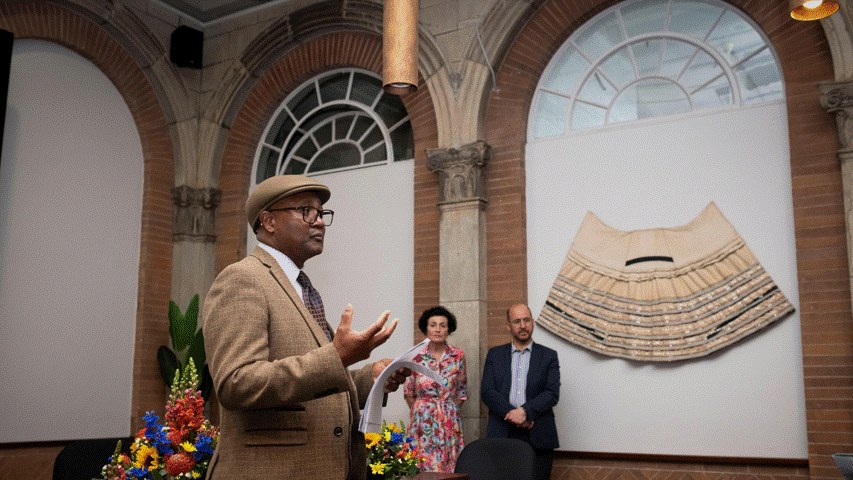Faculty of Humanities’ Research Day
- Wits University
A showcase demonstrating the critical role of humanities scholarship in shaping public discourse, informing policy, and promoting equity and sustainability.

The Faculty of Humanities recently hosted its annual Research Day – an event that brought together scholars, researchers, and postgraduate students from across disciplines. The day showcased the breadth and depth of humanities research, while also fostering collaboration, critical dialogue, and innovation.
This year’s theme: Advancing the future of Humanities, offered a vibrant platform to showcase innovative research emerging from the Faculty while also reflecting on the evolving role of the humanities in addressing global challenges and transforming scholarly practice. The event was opened by the Dean of the Faculty of Humanities, Prof. Mucha Musemwa, who highlighted the Faculty’s crucial role in understanding the country and the world. Thereafter, the DVC (Research and Innovation), Prof. Lynne Morris, congratulated the Faculty on its research achievements and for the contribution of the Faculty to the University’s research endeavours.
Humanities’ Contributions to Sustainable Development
The first session, Humanities Addressing Sustainable Development Goals (SDGs), explored how humanities research contributes meaningfully to the global SDG agenda. Presenters engaged with topics such as social justice, inclusive education, cultural sustainability, gender equality, and environmental humanities. These sessions demonstrated the critical role of humanities scholarship in shaping public discourse, informing policy, and promoting equity and sustainability. The discussions underscored the importance of interdisciplinary approaches and community-engaged research in tackling complex societal issues.
Methodological Innovation and Reflection
The second session, Methodologies in the Humanities, invited participants to reflect on the diverse research methods that underpin humanities scholarship. Presentations ranged from traditional approaches rooted in textual analysis and historical inquiry to innovative and interdisciplinary methods that draw on fields such as sociology, digital media, and performance studies. Scholars critically examined methodological challenges, adaptations, and transformations, offering insights into how research practices evolve in response to changing academic, social, and technological contexts. These sessions highlighted the creativity and rigour that define humanities research and its capacity to adapt and respond to new questions and paradigms.

Embracing the Digital Turn
The third session, Digital Humanities, focused on the intersection of humanities research and digital technologies. Presenters shared work on digital archives, computational analysis, digital storytelling, and the pedagogical impact of digital tools. These sessions highlighted how digital methodologies are transforming research practices, broadening access to knowledge, and creating new avenues for scholarly collaboration and dissemination. The theme also prompted reflection on the ethical and epistemological implications of digital tools, encouraging researchers to think critically about the role of technology in shaping the future of the humanities.
Research Recognition Event
Later that same day, the Faculty hosted its 2025 Research Recognition Event at the Humanities Graduate Studies Centre, honouring the exceptional achievements of its academic community. The event celebrated groundbreaking research, prestigious appointments, national awards, and impactful publications across disciplines.
The evening also recognised NRF-rated researchers, recipients of international fellowships, and those appointed to national panels, reflecting the Faculty’s leadership in cultural entrepreneurship, health research, and digital innovation.
The gathering showcased the collaborative spirit and scholarly excellence that define Humanities. From early-career researchers to established scholars, the contributions continue to shape the future of humanities research at Wits and beyond.
The Assistant Deans of Research thank all for their valuable contributions and look forward to building on this momentum in the future.

